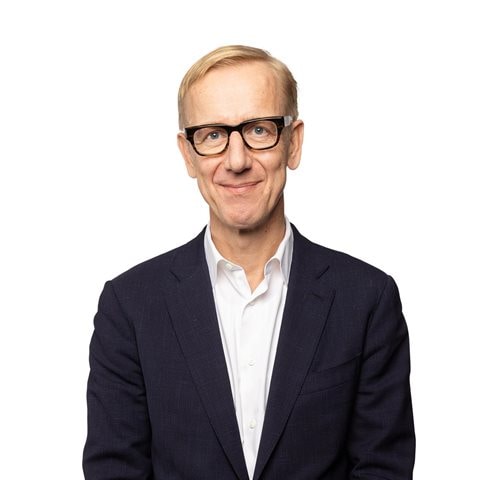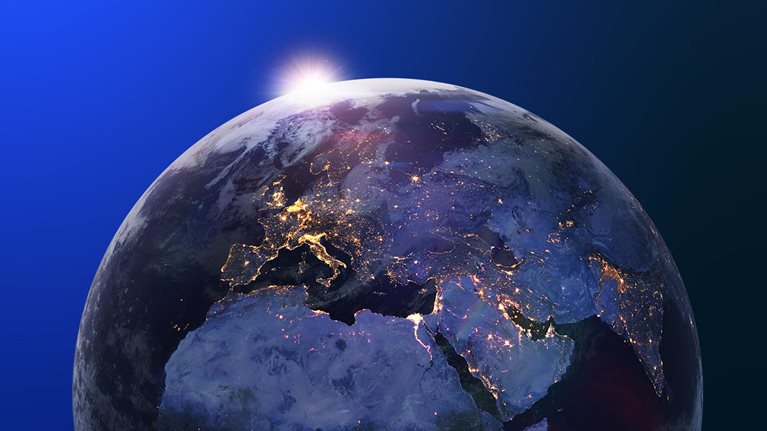In 2023, the World Economic Forum’s annual meeting held at Davos will be the largest in its history, which might surprise the many skeptics who have written about the end of globalization.1 We interpret this to mean that leaders around the world recognize that globalization needs reimagining, not junking, for two reasons. First, the global economy—the interregional flows of raw materials and manufactured goods, and the people, data, and capital this trade requires—is highly unlikely to come undone. No region is an island; every regional economy depends on the others for vital goods and services. The McKinsey Global Institute’s recent report finds that the economic ties that bind us are strong and may be impossible to unwind.2
Second, today’s biggest challenges don’t respect borders; they’re global in nature. Countries and economies everywhere are troubled by the challenges of building resilience in the face of massive disruption (including anticipating future pandemics), affordably weaning our societies from fossil fuels, and building a system in which everyone prospers. There are no solutions to the world’s largest problems that don’t involve the leaders of the world’s largest companies and national and international policy makers.

McKinsey and the World Economic Forum 2023
That’s why, 52 years after the first meeting, the 2023 meeting at Davos will convene a record number of leaders from governments, businesses, and civil society to address the state of the world and discuss priorities for the year ahead. Once a year, these leaders and thinkers meet up to rediscover the joys of debate and serendipitous connection, in a spirit of openness and inquiry. The ideas and relationships forged next week may well be the seeds of new collaborations that put a dent in otherwise intractable problems.
For starters, it’s time to galvanize the conversation on reinventing globalization. That’s one of five themes we’re tuning in to at this year’s meeting:
- Resilience: building new muscles for tomorrow. Global disruption isn’t slowing down. In every arena, from geopolitics to food and energy, business as usual is proving inadequate. Sustained collective action by the public and private sectors is one way forward. Companies can play both offense and defense, with different moves for US companies and those in Europe.
- Sustainability: balancing the energy transition and energy resilience for a net-zero future. Are you ready for the biggest capital reallocation of our (or anybody’s) lifetime? We estimate that to reach net-zero emissions, the world must invest $3.5 trillion more each year than it currently invests. Great companies and leaders won’t let today’s challenges deter them from making the big decisions and investments needed to accelerate the transition. Our region-by-region guide examines the issues.
- Reimagining globalization: diversification rather than decoupling. We live in a highly interconnected world. No region is close to being self-sufficient. And about 40 percent of global trade is highly concentrated, with just a few nations supplying all the others with some vital product. As tensions mount, those who manage trade relationships can find ways to diversify.
- Inclusion: making inclusion a competitive edge. At the current rate of progress, it will take 151 years to close the global economic gender gaps, 29 years for executive teams to reach gender parity, and 24 years to reach ethnic diversity. That’s why what we do today is so important. Further, global companies are finding that inclusion is helping them tap underserved markets. Our latest research examines the lighthouse organizations that are showing the way.
- The space economy: capturing innovation across sectors. We’re also keeping an eye on the future as it hurtles toward us, faster all the time. The budding space economy has vast potential to change the world. Cheaper launches, smaller satellites, and more investment are ushering in an age when companies in many sectors can conduct R&D in space, doing things that aren’t possible on Earth, even inventing new businesses.

What is Davos?
If you’re coming to Davos, we’re excited to see you there. If you’re not coming, let’s chat soon. And take a look at the full range of McKinsey’s work with the World Economic Forum. We look forward to figuring out the future together.




